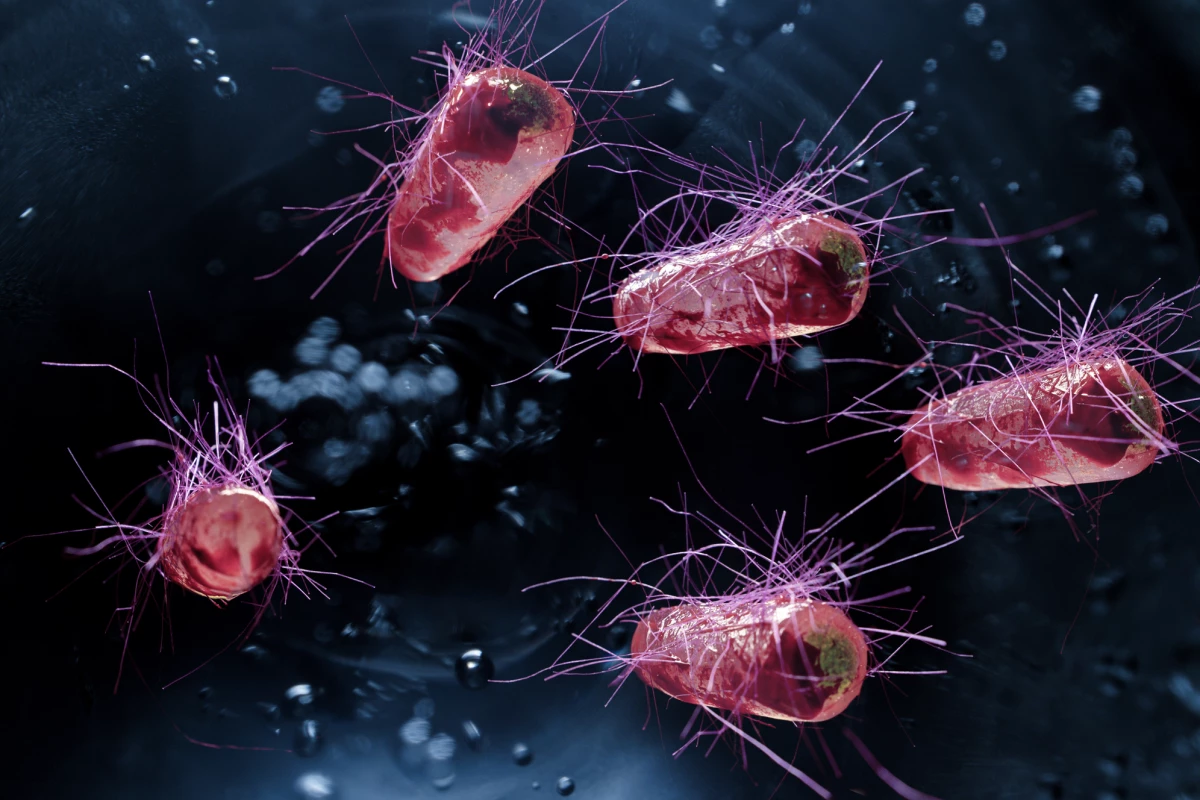Cancer tumors are particularly adept at evading the body’s immune response, making treatment difficult. A new study has genetically engineered a common gut bacteria, enabling it to seek out and destroy cancer tumors from the inside.
There are multiple ways tumors can survive by evading the body’s immune responses. One is to prevent immune cells from getting involved in chemotaxis, the process by which immune cells detect a tumor and migrate towards it to mount an attack. Chemotaxis is driven by cytokines, tiny proteins that signal other immune cells. Chemokines are a subset of cytokines that cause immune cell migration.
The chemokine CXCL16 recruits T cells, the white blood cells that help fight infection and cancer, to infiltrate cells. CXCL16 and its receptor, CXCR6 have been shown to improve survival rates in patients with colon and lung cancers. And recent studies suggest that CXCL16 and CXCR6 together generate anti-tumor immunity. However, no one has discovered a method to deliver CXCL16 into the tumor’s cellular environment.
Scientists have known for some time that some species of bacteria can survive inside tumors. A new study by researchers at Columbia University has used that knowledge, combining it with genetic engineering to create a way of targeting and destroying tumors by recruiting the body’s own immune cells.
“Through decades of research that’s allowed us to understand how an immune response develops, [we’re] developing therapeutics that specifically target each one of those discrete steps,” said Nicholas Arpais, PhD, senior author of the study.
Crucial to the study was the introduction of an engineered, probiotic strain of Escherichia coli (E. coli), a bacterium common to the human gut. The E. coli was engineered to contain a synchronized lysis circuit, a way of exploiting the innate ability of some bacteria to invade disease sites in the body.
When the bacteria enter a tumor, the circuit is triggered, causing them to break apart, or lyse. Lysis enables the repeated localized delivery of chemokines, which recruit T cells and augment anti-tumor immunity.
In 2019, the same researchers had engineered a strain of non-pathogenic bacteria to act like a Trojan horse, entering tumors in mice to attack them from within. They found that the engineered bacteria cleared the tumors and reduced the incidence of tumor metastasis.
In the current study, in addition to using an engineered bacterium, the researchers combined the expression of CXCL16 with another chemokine, CCL20. CCL20 attracts lymphocytes, a type of white blood cell, and dendritic cells, potent cells responsible for initiating the adaptive immune response by presenting antigens to other immune cells.
The researchers found that combining the two chemokines enhanced their therapeutic effect, strengthening the immune response to the tumor in a way that had previously been unavailable.
“By coupling this with chemokines that drive the infiltration and activation of dendritic cells, a critical innate immune cell type, detection of tumor antigens is increased,” Arpaia said.
Their experiments on mice showed that the engineered bacteria produces a strong immune response against tumors that had been directly injected with the bacteria, as well as more distant tumors that hadn’t been injected. Importantly, the bacteria did not affect healthy tissue.
“What we see is that the bacteria will only colonize the tumor environment, and they only reach a sufficient level of quorum to induce lysis within the tumor, so we can’t detect bacteria in other healthy organs,” Arpaia said.
The researchers are continuing to perfect their technique with a view to using it in human clinical trials.
The study was published in the journal Science Advances.
Source: Columbia University





